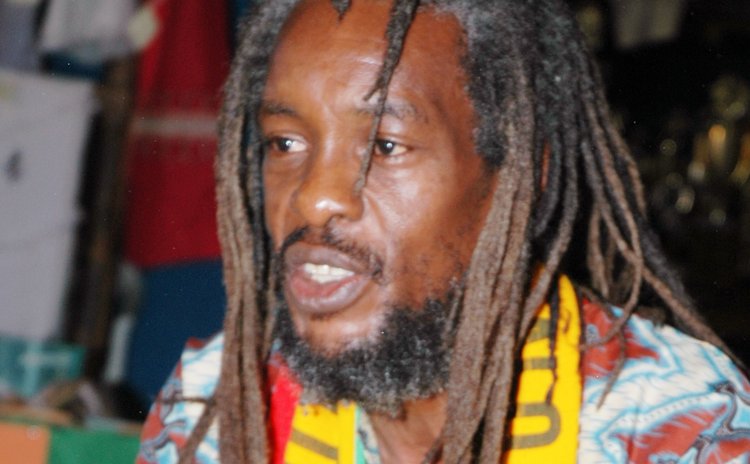Bernard Shaw : Human beings cannot make a plant illegal

The prohibition of marijuana has always fired up Rastafarians.
One of the most famous Rastafarians, Bob Marley produced many songs referring to marijuana, its benefits and about being consistently targeted and persecuted by police for using the outlawed herb.
Marley compassed enduring 'ganja' anthems in the 1970s-- like 'Kaya' and 'Rebel Music (3 O' Clock Roadblock)-- that inspired herb-lovers.
Today, Bob Marley and many other pioneers in the struggle for the legalization of cannabis are dead and gone. But, except in Marley's Jamaica, not much has changed in the region. In most places, ganja remains an illegal drug.
A spokesman for the House of Nyabinghi, Bernard Shaw affirmed that his organisation is the first on record in Dominica to defend and support the use of cannabis, and has done so for decades.
Shaw recalled debating with a psychiatrist on the use of cannabis and defending and supporting its use on a local radio programme 'Confrontation' way back in 1980 .
"We were never afraid or ashamed to talk about the use of herbs," he said. "We have been quite pleasantly surprised, astonished in some ways, to see the fruits of our labour, in our persistence and demands for the use of the herbs."
Shaw said that the position of the House of Nyabinghi is straightforward: Human beings cannot make a plant legal or illegal.
"Our position is pure and simple. We are not in any fight for legalisation and decriminalization as no man can make a plant legal or illegal," he maintained.
"Now the newcomers have to make the noises. . . We have been vocal for a number of years and now is the time for [others in] society to become vocal," he said.
He believes it is imperative that the practice of fining and jailing people for possession of cannabis must end.
"People are suffering harassment for herbs," he declared.
"We just want them to stop harassing us. Nobody has ever talked about Rasta and what they have gone through for the use of herbs," he said.
Shaw noted that cannabis has many health benefits, including opening up the mind.
He explained that cannabis makes the mind more receptive to knowledge and expanded analytical and problem-solving thought processes.
"We use it as part of our whole levity, as part of our sacramental vibrations...." he said.
Shaw contended that the reputation of cannabis has been poisoned with talk that it makes a person insane.
While acknowledging that there is good and bad in everything, he argued that people who use cannabis and have psychotic problems were probably ill before they used it.
Further, he said it is unfair that ganja users are persecuted, and penalized for doing so, while persons can consume a multitude of 'legal but unhealthy' foods with impunity.
Describing cannabis as one of the most wonderful plants created, Shaw said Dominica already has fertile soil that can produce potent plants.
If marijuana is legalized, he thinks controls should be put in place to guarantee its purity and ensure that harmful additives and chemicals are not used since these could affect the brain.
However, he does not think that the any new legislation should dictate how much a person can possess and who can use it.
In relation to ganja exposure and use by children, Shaw said it is parents' responsibility to do what is right for their offspring, just like with every other food and beverage a child consumes.
Shaw remarked that Dominica can benefit significantly from cannabis and said it is shameful that the Caribbean continues to prosecute its people for using it while people in places like the United States are benefiting from its use.




